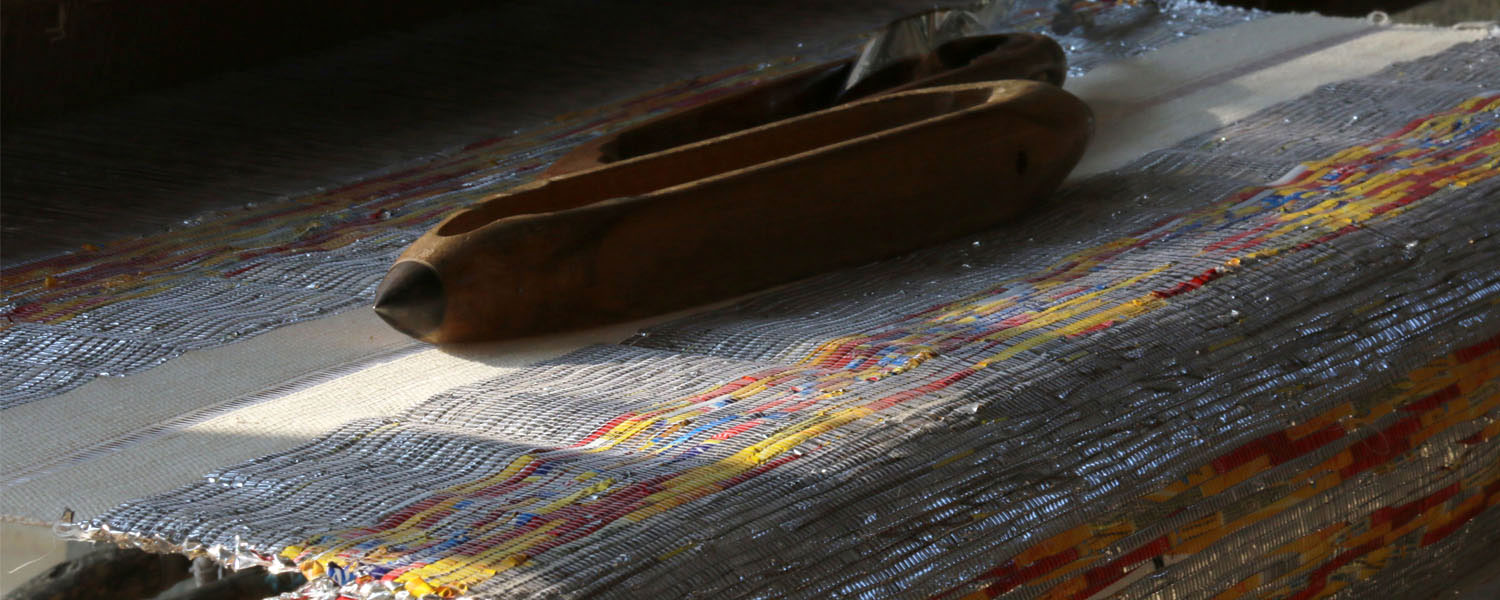.jpg)
Surjan Ram Jaipal
Handloom - Organic Textiles
Organic fabric is cloth made from materials raised on or grown in compliance with organic agricultural standards. It may be cotton, jute, silk, ramie, or wool. It is free from herbicides, pesticides, or genetically modified seeds and adheres to the principles of ethical farming that is good for the planet.
Why Organic?
Organic products foster an earth-friendly community. It is a way of farming and business that must be encouraged for more reasons than one. Everything about organic textiles is fashioned keeping the physical and ethical well-being of our world in mind. The organic movement’s mission is to remove several million pounds of pesticides and other toxic chemicals from the textile manufacturing process and spare millions of global textile workers from the associated severe health hazards. Each time you make the decision to buy an organic product, you are consciously or unconsciously promoting the right way to do business. So many companies sacrifice the health, safety and well-being of their workers just to get down to the bottom line. Nimmit doesn’t. And never will.
A short introduction to organic cotton and silk
Organic cotton is generally understood as cotton and is grown in subtropical countries such as Turkey, China, and USA from non-genetically modified plants, without the use of any synthetic agricultural chemicals such as fertilizers or pesticides. It production also promotes and enhances biodiversity and biological cycles. In the United States cotton plantations must also meet the requirements enforced by the National Organic Program (NOP), from the USDA, in order to be considered organic. This institution determines the allowed practices for pest control, growing, fertilizing and handling of organic crops.
Organic silk is created without the use of any chemicals or treatments using insecticides, pesticides or synthetic additives (often used by some silk suppliers to provide additional softness to their silk fabrics). Organic silk is most often produced in small villages by indigenous people and is the choice for the purest silk. It is a highly sustainable crop with cocoons being produced when the silkworms are about 35 days old. Organic Silk is grown in 22 countries all over the world.
Organic in India
India was among the first societies in the world to grow cotton. It moved away from the organic way of growing it during the early years of the 19th century after the Industrial revolution. A couple of decades ago, the world began to recognize the importance and need to go back to being organic. Ironically, India now has to follow the West and go back to doing what it stopped doing because economic conditions forced it to ape the West and move away from the organic way of life!
India, Jharcraft and Organics
Jharkhand Silk Textile and Handicraft Development Corporation (Jharcraft) is an agency of the Government of Jharkhand that is doing pioneering work in supporting the organic way and helping famers benefit from it. It was established in 2006 with the objective to develop and support sericulture farmers, weavers and artisans of Jharkhand.
Organically Nimmit
At Nimmit, we will do everything we can to source and promote products made using organic cotton and silk. Using our design expertise and global connections, we will strive to make it organic textiles more economically viable. Nimmit understands that unless it makes financial sense to farm the organic way, few people, especially in India, will take to it. It is our mission to make organic textiles worthwhile.
To begin with, here some of the organic textiles Nimmit will offer.

